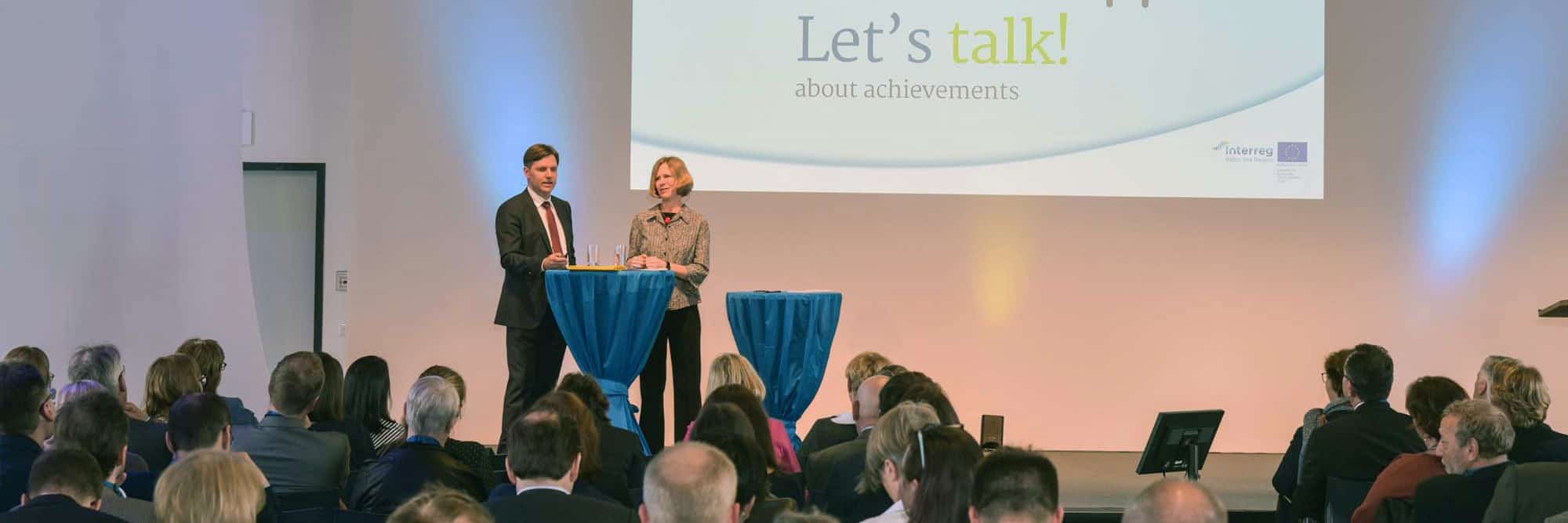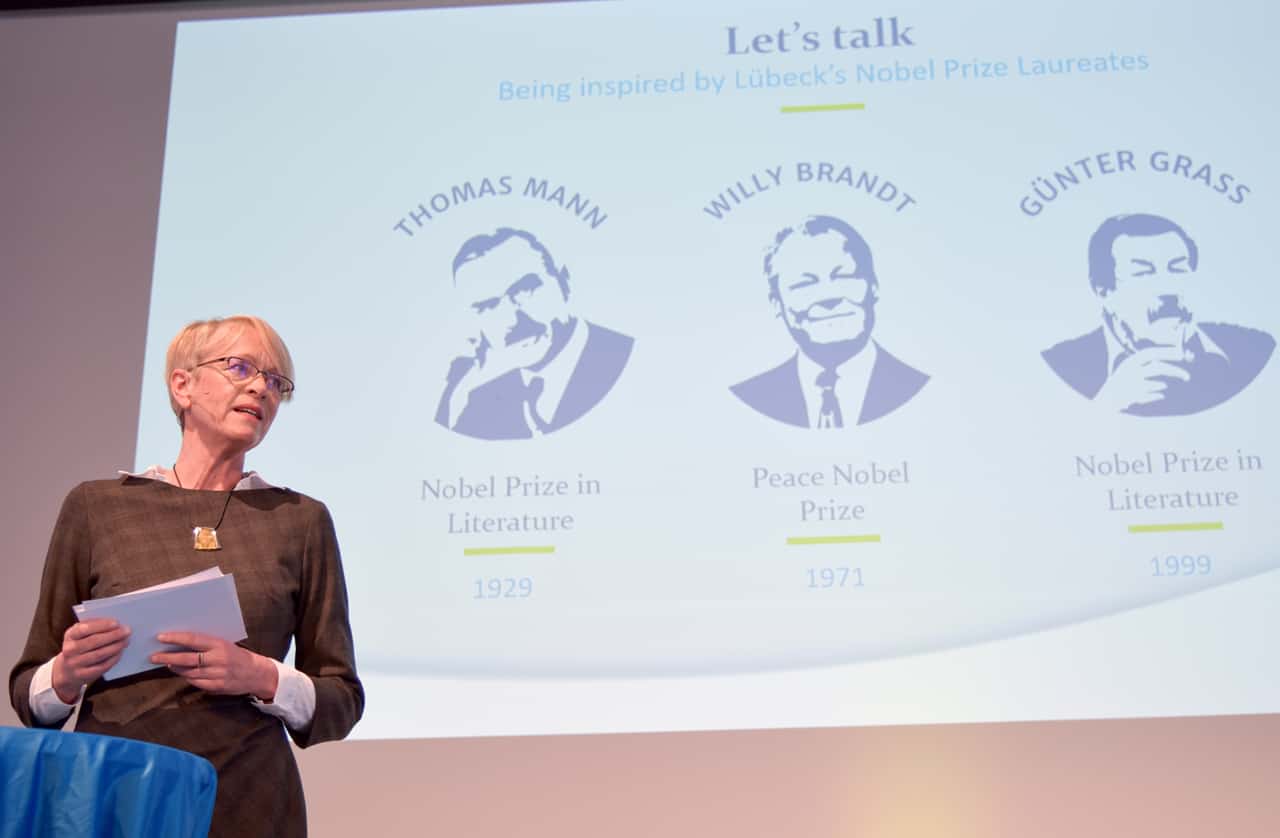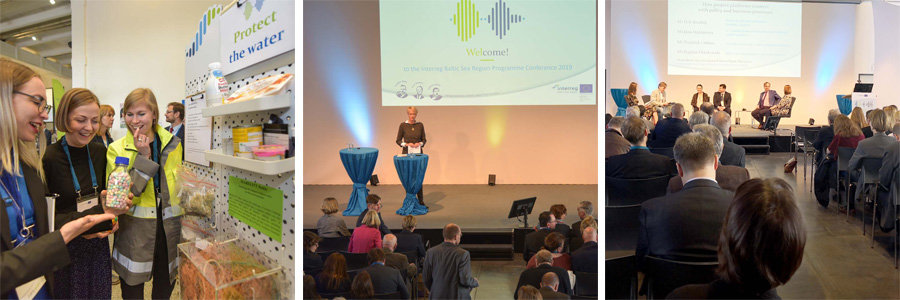Three Lübeck-related Nobel Prize winners, five keynote speeches, two moderated discussions, one presentation on stage, 16 parallel sessions, 111 projects, 300 participants and eight hours of a joint event – this is a simple summary of the Interreg Baltic Sea Region Programme Conference, underpinning the achievements of projects co-funded by the Programme.



©IBSH/S.Kraewski
The heartbeat of the conference
“Let’s talk about achievements – this is the overarching objective, the soundwave, the heartbeat of the conference. Let’s prove that by collaborating, regions and cities around the Baltic Sea get better at tackling challenges that go beyond borders,” announced Susanne Scherrer, director of Interreg Baltic Sea Region’s managing authority and joint secretariat when welcoming all participants in Lübeck. The two-day event gathered more than 300 people from 13 countries, who demonstrated that their hearts beat strongly when talking of the well-being of the Baltic Sea region.
Are we on track?
Eeva Rantama and Ronald Lieske, team leaders at the Managing Authority and Joint Secretariat, presented the current project portfolio, synthesised key figures and illustrated achievements. Monitoring Committee members from Poland, Norway and Russia discussed the Programme achievements from their perspective. “The Programme is a very good example that we can work together across EU and non-EU members; it has always been adaptable to the changing situation,” stressed Ann Irene Saeternes, Eastern Norway County Network. “Out of theoretical concepts, the projects managed to develop very interesting ideas and tangible results,” added Teresa Marcinów, Ministry of Investment and Economic Development of Poland. “We came for the first time with own funding to this Programme. It is a new spirit based on ownership and responsibility,” said Igor Kapyrin, Ministry of Foreign Affairs of the Russian Federation.


Baltic Sea region challenges in 16 themes
Interreg projects pitched their achievements in twelve parallel sessions. Not an easy bit as some of them were thoroughly challenged by experts and conference participants. Sessions covered a wide variety of topics, including renewable energy and energy efficiency, smart specialisation, circular economy, urban mobility, hazards to the sea. It was all about identifying practical project results and learning what kind of impact Interreg projects can produce.
The conference wrap-up
“Our project partners are standing on their feet and know what they are doing,” said Margarita Golovko, Monitoring Committee, Ministry of Finance of Estonia, when telling about her impressions during the conference. “Transnational cooperation is like ‘super’ cooperation. It creates possibilities to involve policy makers and change things in the countries,” she added. “Interreg is about sharing tangible results and processes,” explained Anna Bäckman Arminen, Monitoring Committee, Ministry of Enterprise and Innovation of Sweden, after attending various sessions. Pekka Jounila, European Commission, DG for Regional and Urban Policy, Policy Coordinator, put his emphasis on the people involved in the projects: “I saw commitment of people involved in Interreg projects and their urge to deliver useful results for the regions. I observed that the people active in Interreg projects see the bigger picture of their activities in the context of the Baltic Sea Region, and through Interreg they participate in the European project.”






